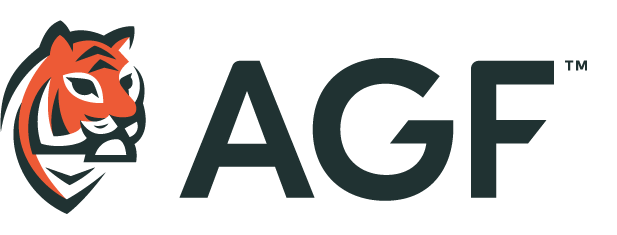
The Gaza Endgame — and Saudi Arabia’s Role
Author: Greg Valliere
May 22, 2024
GEOPOLITICAL EXPERTS ARE OPENLY SPECULATING about the terms of a truce in the Gaza war. It won’t be easy — Israel will be very reluctant, Hamas will continue to be a huge threat, and hostages will have to be released. But there’s one unique aspect of the ongoing talks — Saudi Arabia will play a significant role.
SEVERAL IMPORTANT DETAILS WERE LEAKED yesterday by Washington Post columnist David Ignatius, who is fast becoming the most influential Mideast analyst in the world, even more plugged in than the ubiquitous Tom Friedman at the New York Times. Ignatius concedes that a settlement isn’t imminent — but he thinks the rough outlines of a deal are taking shape.
U.S. SOURCES — including National Security Director Jake Sullivan — were in Israel and Saudi Arabia this past weekend, and they apparently gave Ignatius a deep briefing on what may lie ahead.
FIRST AND FOREMOST, leaders in the region are relieved that despite enormous casualties, the war has not engulfed the entire region. Sources credit the impact of behind the scenes talks between the U.S. and Iran, which apparently kept the temperature from boiling.
THE IRANIANS have kept their allies the Houthis from striking aggressively in the Red Sea, and the U.S. has refrained from stepping up attacks against Iranian proxies in Syria and Iraq. The Iranians responded by slowing their enrichment of uranium. And both countries worked together in an unsuccessful attempt to rescue President Ebrahim Raisi this past weekend.
THE MOST INTRIGUING DEVELOPMENTS HAVE COME FROM ISRAEL: Instead of a furious ground attack in Rafah, the Israelis are now leaning toward a more limited assault that — U.S. officials think — will result in fewer civilian casualties. For that reason, President Biden has begun to tone down his criticism of Benjamin Netanyahu.
THE ISRAELIS CLEARLY ARE PREVAILING AGAINST HAMAS: 75 percent of its military has been destroyed, and Israel may be content to police the region and not go after the remaining guerrillas — although Netanyahu and his far-right Cabinet have not signed off on that.
IF ISRAEL ALLOWS HAMAS TO “melt into the population as a guerrilla force,” as Ignatius says, this will be a continuing headache for Israel, which probably will have to conduct regular raids against insurgents there.
WHAT WILL HAPPEN ON “the day after” a truce takes effect? Ignatius writes that it probably will include a Palestinian security force drawn in part from the Palestinian Authority’s administrative payroll in Gaza.
THIS PALESTINIAN FORCE would be overseen by a governing council of Palestinian notables, backed by moderate Arab states such as Egypt, Jordan, the United Arab Emirates and Saudi Arabia. Some Israeli officials — but not Netanyahu — accept that this governing entity would have ties with the Palestinian Authority in Ramallah.
PERHAPS MOST PROMISING, Saudi Arabia has agreed to a “near final” draft of a security agreement with the U.S. that would include normalization of relations with Israel. (A similar treaty appeared to be imminent on Oct. 7.)
THE ELEMENTS OF AN AGREEMENT that would bring an eventual end to the war are there, Ignatius says — on paper. Because Netanyahu’s right-wing coalition balks at many of the details, the final dealmaking might fall to a future Israeli government. But in the distance, you can see the contours of a possible exit ramp, Ignatius says.
The views expressed in this blog are provided as a general source of information based on information available as of the date of publication and should not be considered as personal investment advice or an offer or solicitation to buy and/or sell securities. Speculation or stated believes about future events, such as market or economic conditions, company or security performance, or other projections represent the beliefs of the author and do not necessarily represent the view of AGF, its subsidiaries or any of its affiliated companies, funds or investment strategies. Every effort has been made to ensure accuracy in these commentaries at the time of publication; however, accuracy cannot be guaranteed. Market conditions may change and AGF accepts no responsibility for individual investment decisions arising from the use of or reliance on the information contained herein. Any financial projections are based on the opinions of the author and should not be considered as a forecast. The forward looking statements and opinions may be affected by changing economic circumstances and are subject to a number of uncertainties that may cause actual results to differ materially from those contemplated in the forward looking statements. The information contained in this commentary is designed to provide you with general information related to the political and economic environment in the United States. It is not intended to be comprehensive investment advice applicable to the circumstances of the individual.
AGF Investments is a group of wholly owned subsidiaries of AGF Management Limited, a Canadian reporting issuer. The subsidiaries included in AGF Investments are AGF Investments Inc. (AGFI), AGF Investments LLC (AGFUS) and AGF International Advisors Company Limited (AGFIA). AGFI is registered as a portfolio manager across Canadian securities commissions. AGFUS is a registered investment advisor with the U.S. Securities Exchange Commission. AGFIA is regulated by the Central Bank of Ireland and registered with the Australian Securities & Investments Commission. The term AGF Investments may refer to one or more of these subsidiaries or to all of them jointly. This term is used for convenience and does not precisely describe any of the separate companies, each of which manages its own affairs.
About AGF Management Limited
Founded in 1957, AGF Management Limited (AGF) is an independent and globally diverse asset management firm. Our companies deliver excellence in investing in the public and private markets through three business lines: AGF Investments, AGF Capital Partners and AGF Private Wealth.
AGF brings a disciplined approach, focused on incorporating sound, responsible and sustainable corporate practices. The firm’s collective investment expertise, driven by its fundamental, quantitative and private investing capabilities, extends globally to a wide range of clients, from financial advisors and their clients to high-net worth and institutional investors including pension plans, corporate plans, sovereign wealth funds, endowments and foundations.
Headquartered in Toronto, Canada, AGF has investment operations and client servicing teams on the ground in North America and Europe. AGF serves more than 800,000 investors. AGF trades on the Toronto Stock Exchange under the symbol AGF.B.
For further information, please visit AGF.com.
©2026 AGF Management Limited. All rights reserved.





